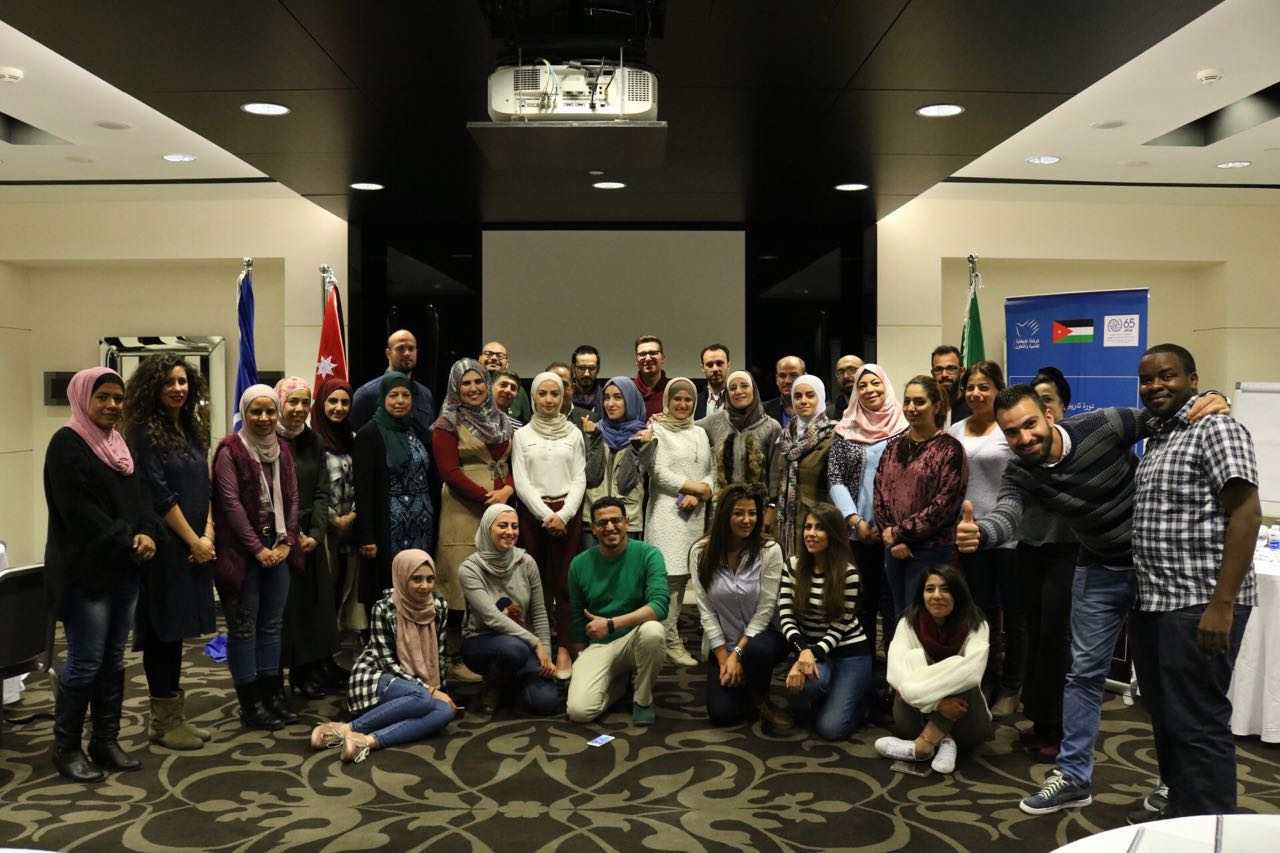-
Who We Are
WHO WE ARE
The International Organization for Migration (IOM) is part of the United Nations System as the leading inter-governmental organization promoting humane and orderly migration for the benefit of all. IOM has had a presence in Jordan since 1994.
About
About
IOM Global
IOM Global
-
OUR WORK
Our WorkAs the leading inter-governmental organization promoting since 1951 humane and orderly migration, IOM plays a key role to support the achievement of the 2030 Agenda through different areas of intervention that connect both humanitarian assistance and sustainable development. Across Jordan, IOM provides specific services to the Jordanian government to manage the migratory flows.
Cross-cutting (Global)
Cross-cutting (Global)
- Data and Resources
- Take Action
- 2030 Agenda
Psychosocial Support Component Enhanced Through Training for Health, Protection Providers Working with Syrian Refugees and Jordanians
Amman, 12 December 2017 – IOM, the UN Migration Agency, in cooperation with the Ministry of Social Development and with the funds from the Government of Italy through the Italian Agency for Development Cooperation, is helping enhance psychosocial support to Syrian refugees and host communities in Jordan. Today (12/12) in Amman, front-line officers working with refugees and Jordanians will complete a three-day psychosocial support training, which aimed to improve the capacity of frontline protection and health workers to incorporate mental health and psychosocial support in their work.
From April to December 2017, IOM held four training sessions, in which, professionals from Governmental and non-governmental organizations (NGOs), who deliver protection and health services to Syrian refugees and Jordanians, took part.
“The training will help me to do more and to know how to act in front of a survivor of violence,” said Linda Samarna, a translator for the Jordanian Government’s Counter Trafficking Unit, before she took part in one of the sessions. “We often deal with cases of violence,” she added.
The success of emergency programs relies on the mental wellness of the beneficiaries, as it is necessary to build resilience and develop positive coping mechanism. A number of international organizations and NGOs are implementing programmes in Jordan, adding to the work already done by Jordanian NGOs, such as Nour Hussein Foundation and the Jordan River Foundation. The increase of service providers as part of the response to the Syrian crisis has made it more challenging for social workers to understand the full range of services available in terms of mental health and psychosocial support. The training has served to improve a network among the relevant actors by sharing information about the services available both for Syrian refugees and Jordanians.
“To include the mental health component in their work front-line officers need to be trained on basic techniques such as de-escalation of a violent situation, the principle of “do no harm”, survivor centred approaches when dealing with Gender Based Violence survivors and children that have survived violence.” said Marie Adèle Salem, the trainer.
Through the training the participants also got the opportunity to share their experiences in relation to mental health and psychosocial support. The training provided a platform for the discussion of common cases and challenges faced by the participants, and how to strengthen their coordination among themselves. The participants also worked on the general development of self-care considerations, and skills for self-awareness and self-help.
The training is part of a regional project funded by the Government of Italy and implemented by IOM in Jordan, Lebanon and Syria. The project aims to build a sustainable and harmonized response in addressing the psychosocial needs of internally displaced persons, refugees and communities affected by the conflict in Syria and neighbouring countries. The project is in line with the priorities of the 2015 Strategic Response Plan (SRP) for the crisis in Syria, the Regional Refugee and Resilience Plan (3RP), and the Inter-Agency Standing Committee (IASC) Guidelines on Mental Health and Psychosocial Support in Emergency Setting.

For more information, please contact: Laura Sisniega, Communication officer of IOM in Jordan, lsisniegacrespo@iom.int, +962 79 7048167
